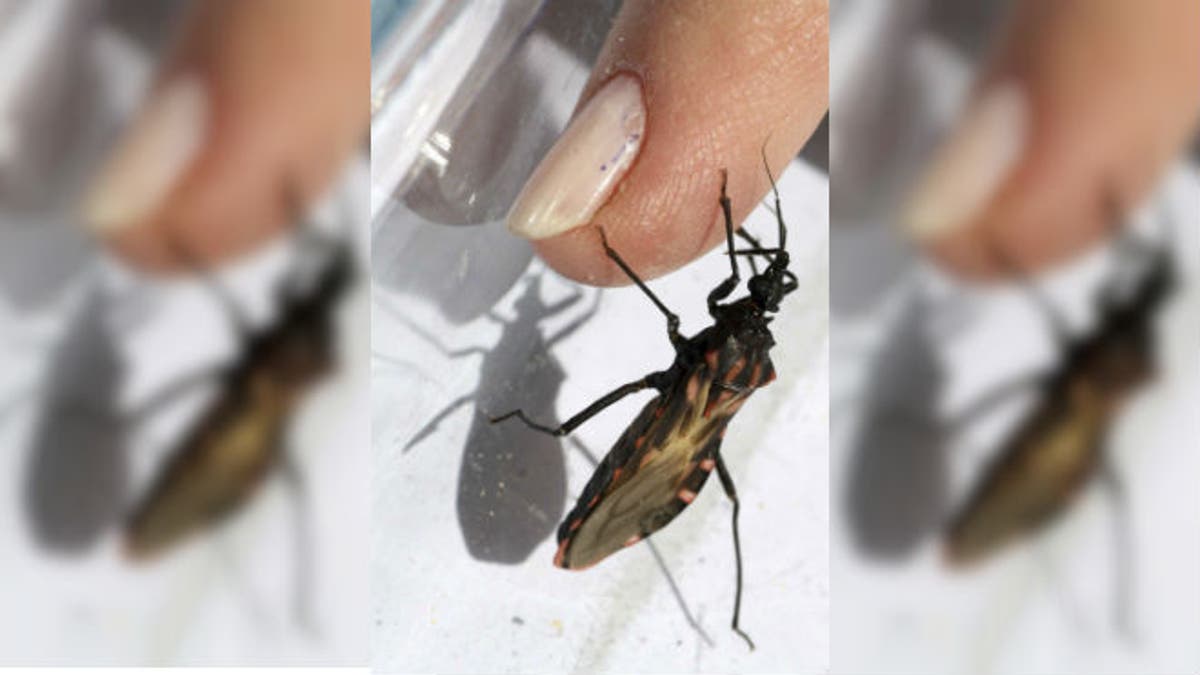
A Panstrongylus megistus insect crawls on a finger in the Argentine province of Corrientes in this picture taken September 16, 2008. This bug, commonly known as Vinchuca in many rural areas spreads Chagas, a disease that originated in Latin America, is endemic to Argentina and has killed some 50,000 people worldwide. REUTERS/German Pomar (ARGENTINA)
Recent reports in Texas suggest the growing problem of Chagas disease, a potentially life-threatening condition transmitted by triatomine bugs, or “kissing bugs,” is not improving in the state this year. This week, NBC 5 reported that at least a dozen Texans have been infected since two years ago, when the state began tracking the disease. Chagas has historically been the most problematic in Latin America.
Kissing bugs— which got their nickname due to their affinity for feasting on human faces and lips at night— carry the parasite Trypanosoma cruzi that causes Chagas. The condition is chronic and leads to flu-like symptoms, but in about one-third of individuals it can cause cardiac problems and in 10 percent gastrointestinal issues, according to the World Health Organization (WHO). In rarer cases, Chagas can cause death.
According to NBC 5’s report, which is the result of a four-month collaboration with The Dallas Morning News, a surge in the number of Texans being infected with Chagas is not the result of more bugs in the state. Rather, it is due to more suburbs being developed on once-rural land where the bugs have always lived, Ed Wozniak, a researcher with the Texas Department of State Health, told NBCDFW.com. The outlets’ report indicated that about 66 percent of the bugs that have been analyzed and tested positive for the parasite in Texas were found to be filled with human blood.
The Centers for Disease Control and Prevention (CDC) suggests travelers who sleep in well-constructed facilities are at low risk for exposure to triatomine bugs. According to the WHO, vector control is the most effective prevention method in Latin America. This can include: spraying of houses and surrounding areas with residual insecticides, personal preventative measures such as bednets and good hygiene practices in food preparation, transportation, storage and consumption.
While Texas officials are aware of the growing problem in the state, they are urging anyone who begins exhibiting flu-like symptoms and believes they have been bitten to contact the Texas Department of State Health Services for testing. Benznidazole and nifurtimox are 100 percent effective in killing the parasite and curing the disease, but only if given soon after infection at the onset of the acute phase, according to the WHO.








































